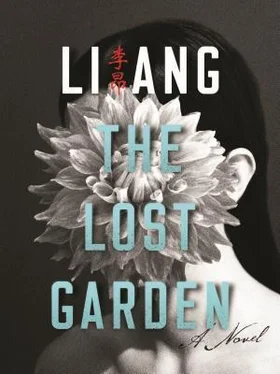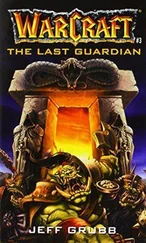As they were driven around by the consul’s chauffer, Yinghong and Father, who were both sitting in the back, began to chat in Japanese, after Father explained to the young man, who didn’t know the language, that Japanese was their daily language at home.
“When I was little, your grandfather drove a Japanese Black Hood, and he was actually the one who taught his chauffer how to drive. He was well mannered.”
Father spoke slowly, but as always, when he talked about something important, his laconic eloquence showed how well read and knowledgeable he was. She listened quietly and carefully.
“I remember when I was a child, the driver at our house didn’t wear a uniform, because your grandfather was a considerate man who didn’t want people to determine the driver’s status from his clothes. He often told us that ours was a large family that made no distinction between employer and the employee. This I learned in childhood, and, later, when I went to study in Japan, it played a significant role in my eventual decision to major in political science, instead of the more popular field of medicine.”
Father paused before continuing:
“Your grandfather did not allow me to be driven to and from my Japanese elementary and junior high schools because he did not want me to think I was different from the other kids. It didn’t bother me until one day, when an arrogant and aggressive Japanese classmate who had moved to Taipei returned to Lucheng for a visit. I didn’t want him to look down upon us Taiwanese, so I told the driver to take me to the train station to pick him up. Your grandfather gave me a severe tongue lashing after the classmate left.”
Yinghong frowned as a sudden anxiety rose up in her, but she quickly relaxed her brows when she sensed it was not the right thing to do.
“Young people are always full of pride. I remember that at the time I pretended to listen to your grandfather, but in fact I did not agree with him. So when other Japanese classmates came to visit, I made a deal with the driver for him to bring me to a street outside the Upper House and we’d walk home from there. The driver, who was fond of me, went along each time. I felt I’d gained enough prestige and the Japanese classmates would not dare look down upon me.”
Father smiled at Yinghong as he talked.
“The driver’s name was Ah-bing. He was in his forties. He was fluent in Japanese, but your grandfather was strict about not using Japanese at home. Only Taiwanese was allowed. So we called him Ah-bing. Your grandfather had taught us early on that the Japanese were an alien race, invaders, and I never forget that.”
Father turned to look out the window. Yinghong followed his gaze to see how the autumn scene near Lucheng, typical of central Taiwan, receded slowly as the car moved along. The rice had been harvested, and the field was blanketed by a riot of bright yellow flowers from newly planted rape. Row upon row of purple hemp ready for fiber extraction appeared quiet and peaceful under a bright autumn sun, interrupted only by tires going over a stone path that years later would be paved in asphalt.
“The funny thing is, one day I realized that there were people who were not from an alien race, yet were more ruthless than the aliens, not invaders but more bloodthirsty than invaders. So I began to use the alien’s language to teach my own children.”
Still with his gaze fixed out the window, he continued quietly without turning to look at her.
After Father began driving, Old Taro, who guarded Lotus Garden, got a bicycle from God-knows-where and began to follow the Mercedes. Back then there were no stoplights in Lucheng, and people rarely paid attention when they crossed the street. As a result, Father drove slowly in town, and Old Taro was able to keep up for a while along Zhongshan Road.
But once Father left town, he’d step down on the gas pedal, sending the powerful Mercedes flying down the road, and leaving Old Taro in his dust. Underestimating the power of the car, he actually pedaled to catch up as if his life depended on it. It only took a few minutes for the Mercedes to disappear into the distance, forcing him to give up the chase; he was panting hard but shook his head incredulously.
That happened several times, until he was convinced that he’d never catch up with the Mercedes on his rickety bike. After that, he’d give chase in a lackluster fashion and follow along for a while, just for show, of course. When the Mercedes sped up, he kept at his own speed, and Father had no idea when he stopped following.
Father never hired a driver, preferring to drive himself around and enjoy the scenery. When Yinghong passed the exam to enter the senior-high division of a top-tiered girl’s high school in the provincial capital, it was his daily duty to pick her up at school.
A late riser, Father rarely got her to school in time for the morning study session at seven, so Yinghong caught a local train on her own. When school let out, she lined up with other students to leave the campus together, then walked off alone onto a main street by the school, where Father would be waiting for her.
Even at home in Lotus Garden, Father maintained the habit of dressing up before leaving his bedroom. He was an even more meticulous dresser when he was leaving the house in his car. At the time, Western suit pants with suspenders were in vogue, and they became father’s usual attire, along with shirts from Hong Kong or Japan, a bow tie, wing-tip oxfords, his hair parted on the side and sleeked back with hair oil.
For years, Father was known in Lucheng as a good-looking man, in addition to his reputation as a prodigal son. Behind his back, people used a slangy nickname, the Black Hound of the Zhu Family, as a way to separate him from other prodigal sons. He always looked elegant and refined, and never visited the red-light district or other unsavory businesses, which gained him some grudging respect from the townsfolk, who would not dare call him “Black Hound” to his face.
But he never paid attention to any of this. No matter whether he went out for a ride or to pick up Yinghong, he usually chose a less-traveled route. When he got home to Lotus Garden, he drove into a newly built car park. He also washed and waxed the car himself.
In the beginning, when he was gung-ho about washing the car, he was so meticulous that toothpicks and cotton swabs were his usual tools. The toothpicks were used to remove sand and dirt from crevices, while the cotton swabs were for a detailed polishing job. Back then not even hospitals in Taiwan used cotton swabs; instead they rolled wads of cotton on medical equipment. In order to care for his Mercedes, Father asked friends to bring him cotton swabs when they returned from abroad, as he’d used them when traveling overseas.
Washing and polishing the car obviously helped Father kill a substantial amount of time. But like everything else, he soon lost interest in it and turned the chore over to Luohan, who was so fond of the vehicle that, whenever there was a wind and the weather turned cold, he’d run over to protect it with a canvas cover, as if afraid it might catch cold.
However, Father kept up his custom of going out for a ride just about every day. He frequently drove to Taichung, where he would buy stereo equipment — his new hobby. His Mercedes served as perfect transport to bring the turntables and speakers back to Lotus Garden and back to Taichung for repair if there was a problem with the system. By the time Yinghong started senior high, Father would pepper his discussion with the stereo shop owner with references to loudspeakers from England’s Vitavox, or 300B amplifiers from W.E., all with a Japanese accent, of course. Buying stereo magazines from Japan and putting together a stereo system became a major task in his daily life.
Читать дальше












